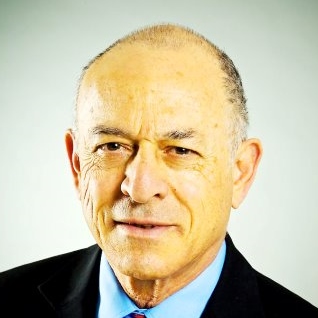
SA

How far should doctors go to uphold ethical practice?
MOIRA SCHNEIDER
Benatar is emeritus professor of medicine at the University of Cape Town and the doyen of bio-ethics in South Africa, a field in which he has made a huge contribution. His talk was part of the ancillary programme to the US Holocaust Memorial Museum’s exhibition, Deadly Medicine: Creating the Master Race. A travelling exhibition, it is currently on the first leg of its 18-month tour of South Africa and Namibia, and this marks the first time that the US museum has featured an exhibition on the African continent.
As part of his talk, Benatar said there had long been concern regarding the abuse of patients by medical researchers – a concern most widely acknowledged with regard to Nazi doctors. Yet in 1939, the Germans had introduced mandatory lectures on ethics for medical students imparting Nazi policy. “This demonstrates that medical ethics can be corrupted by the prevailing ideology, social attitudes and politics,” said Benatar.
The German Reich went on to introduce a code of medical ethics in 1931 that required consent from patients who were to be subjects of medical research. The availability of the code did not necessarily guarantee the preservation of their rights, he noted.
A turning point in medical ethics was marked by the Nuremberg Code in 1947, promulgated after the Nuremberg trials, where Nazi doctors were convicted for the human experiments they’d conducted on concentration camp prisoners. The code attempted to give clear guidelines about what was legal when conducting human experiments. Another turning point occurred with the establishment of centres of bio-ethics in the US in the 1970s, marking a shift away from medical ethics as defined by doctors. In Benatar’s view, philosophers had made the greatest contribution to understanding the theories, principles and values underpinning bio-ethics.
It took several decades after the promulgation of the Nuremberg Code for doctors to understand that medical research on humans (and animals) required critical evaluation by research ethics committees to avoid the exploitation of vulnerable people, he said. “When doctors in the US and UK had pointed to instances of unethical research in prominent hospitals in the 1960s, they were initially ignored and even ostracised by their colleagues.”
Benatar noted that research today is still tainted by conflict of interest, and even corruption, with the falsification of research results by some unscrupulous researchers.
In the early 2000s, Benatar was the recipient of a 10-year grant from the National Institutes of Health to build the capacity of members of research ethics committees in southern Africa. This work also helped to ensure that research conducted on vulnerable individuals would be done as ethically as possible.
But, he said, with 90% of resources spent on medical research being devoted to studying 10% of the global burden of disease, many diseases were not being researched because those suffering from them were unable to pay for treatment.
“What does it mean to be a good doctor?” he asked. “Technical competence is critical, and the ‘first base’ is to be achieved. Health professionals should also have the attributes of integrity, humility, trustworthiness, compassion and respect for the dignity of all.
“They are expected to be dedicated to their work and to the welfare of their patients, over and above their own interests. Ultimately, the practice of medicine is not about doctors, it’s about patients.”
Benatar paid tribute to Janusz Korczak, the Polish-Jewish physician who had refused sanctuary on several occasions and gave up his profession to look after orphans. In 1942, he insisted on accompanying his charges to Treblinka and certain death. “He is one of many heroes in medicine and his attitude is emulated today by many who work for Médecins Sans Frontières (Doctors Without Borders),” he said of the humanitarian organisation.
Commenting on the ethos of MSF and Korczak, Benatar said they “embraced the idea of selflessly serving a wounded humanity, and at risk to their own lives”, epitomising medical ethics. “I hope that that will continue.”
Benatar said criticism of the medical profession had increased in recent years, in part because of some abuse of technology and fewer doctors talking and listening to patients.
“The level of communication between colleagues can also be very bad,” Benatar added, referring to a surgeon who had recently refused to engage with him about a patient in spite of the patient’s family’s request for him to do so. “It won’t make any difference,” he had said, to Benatar’s disgust.
Contemporary ethical challenges include the complexity of taking co-ordinated care of individual patients with multiple conditions and the challenges posed by advances in synthetic biology (cloning, gene editing and human enhancement) that could lead to new forms of privilege and discrimination.
In Benatar’s opinion, all healthcare systems globally are unsustainable due to demand exceeding supply.
Commenting on the political economy of the world today, he said: “The global economy is designed to allow the rich to get richer while the poor get poorer. There is no trickle-down effect. We seem to have forgotten about the need for less inequality, and as a result, democracy is being eroded. While this is increasingly recognised, it is difficult to change as the vested interests of the most powerful dominate.”
He cited another challenge: How do we sustain and enhance professional values in the next generation of medical students?
“There are no easy answers but we must teach ethics, even though there is a dispute about how this should be taught, who should teach and whether teaching is effective.”
Addressing the question of whether the doctor or the family had the decision-making power in the case of a terminally ill child, Benatar said: “Parents have the best interests of their child at heart, so broadly speaking and with some exceptions, their decisions should be respected.”
An example of an exception would be when Jehovah’s Witnesses refuse a blood transfusion for their child. This decision can be overridden by health professionals with the support of the law.




